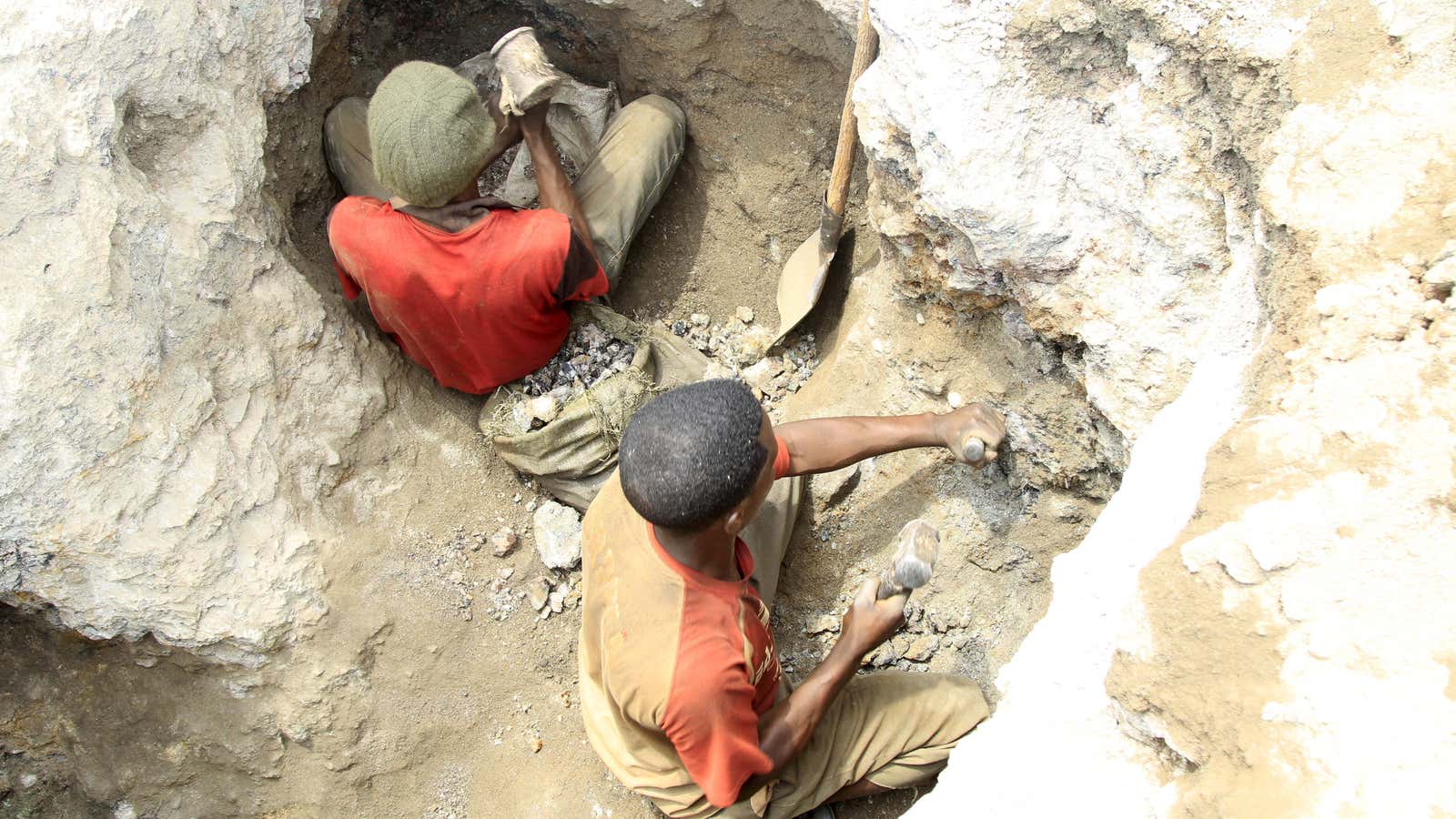Apple’s reported move to buy cobalt directly from miners could bring efficiency to the Democratic Republic of Congo’s troubled mining sector, but it will likely only muddle an already murky field.
Cutting out the middleman, Apple reportedly wants to buy cobalt directly from miners, according to a report from Bloomberg on Feb. 21. Relying on anonymous sources, Bloomberg reports that Apple is in talks to buy long-term supplies of the metal. Once an ignored byproduct of copper mining, the demand for cobalt is driven by the world’s reliance on the rechargeable batteries in our smartphones and the shift toward electric vehicles.
The report does not say which miners Apple will be dealing with, and Apple refused to comment on Bloomberg’s story. Glencore, the mining multinational that operates in about 50 countries, has named Apple as one of the main customers it was talking to about cobalt, according to Bloomberg.
Apple and other major cobalt consumers are scurrying to access cobalt resources that are currently limited—not because of the amount of ore available, but because mining companies can’t get it out of the ground fast enough to keep up with everyday demand of rechargeable batteries.
“The problem has nothing to do with the amount of cobalt in the ground but rather the number of mines currently producing cobalt,” said Trent Mell, CEO of First Cobalt Corp, the world biggest cobalt exploration company. “We are in a supply-demand imbalance and it will take miners a few years to catch up.”
Apple’s reported move is neither new or surprising says Ilja Graulich of Madini Minerals, a junior mining company based in Johannesburg with interests in the DRC. By securing their cobalt supply, Apple is doing what big manufacturers have done for years.
“Big corporates will want to make sure that their supply chain is governed properly,” said Graulich, adding that this will likely squeeze out unscrupulous miners. Any junior company associated with the purported deal will have even more reason, and funding, to stay in the troubled DRC.
“What will be interesting is the price—everybody is trying to get into cobalt so will set the price?”
The rapidly changing technology industry means it is difficult to predict cobalt’s longterm future. Glencore reported a 2017 performance that was “our strongest on record,” CEO Ivan Glasenberg said in the company’s results report on Feb. 21. Much of that bumper 44% dividend payout is due to the spike in cobalt, which saw a 108% increase on the average price, from $12 a pound to around $25 a pound last year alone.
Glencore is on track to take advantage of that price increase, with an anticipated production increase of 133%, according to the results report. By 2030, 314 kilotons of cobalt will be needed by the electric vehicle industry alone, according a study commissioned by Glencore.
If Apple is to go directly to the supplier, it will likely benefit the likes of Glencore, while cobalt profits do little to improve the country’s economy. Congolese policymakers are already considering increasing the royalties mining companies must pay to export cobalt. If that law takes effect, companies with a longstanding presence in the DRC will probably find a way to work around it. Thanks to a deal like the 2012 joint agreement with the DRC’s national electricity supplier, Société Nationale d’Électricité, Glencore “contributed” $389 million as a loan to improve the electricity grid, according to the results report. The state repays the loan through granting electricity discounts.
